Notes From The Program Director | Week of February 24th 2023
Hero Image
Hero Image
heading
Notes From The Program Director
Week of February 24th, 2023
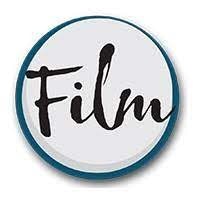
Melissa Tamminga
Rich Text
Hello, friends!
This week, we continue our run up to the Oscars, with a renewed chance to see some Oscar-nominated films: Living, the Oscar-nominated Live Action shorts, and the Oscar-nominated Animated shorts. And brand new to our screens is a lush, swoon-worthy film: Emily.
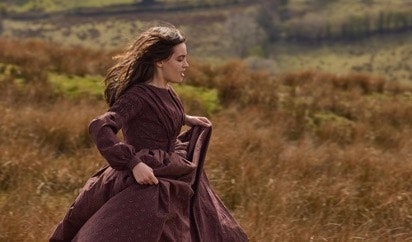
It's personally hard for me to resist a well-told and sensuous costume drama set in the 1800's, and Emily, this feature film debut from actress-turned-director Frances O'Connor, hits its mark. Following the life of Emily Bronte, it's an adaptation that is fairly loosely tied to the real life writer, but its period detail is richly evocative, luxuriating in dynamic expressiveness rather than the stiffly mannered or airless approach adjacent literary adaptations often have.
The film also satisfyingly taps into that always insatiable curiosity about the Bronte sister who wrote such a dark, thorny, and passionate tale as Wuthering Heights, a book that has seemed, to many, well ahead of its time in its devotion to the turbulent emotions of its characters. And this film, indeed, depicts Emily Bronte as a woman somewhat out of her time, straining against the bonds of what was considered proper for women and exploring the ways in which stories and writing were both reflections of what she felt and chances for escape from the restrictive mundane.
It also explores the close and sometimes fraught relationships among the Bronte siblings, the ever-present threat of death (all the siblings died young, as did their mother), and Emily's rumored love affair. And if the film, perhaps, gives a bit too much credit to a tragic (and sexy!) love affair as Bronte's inspiration for writing and perhaps gives in to the temptation of too closely equating the novelist with her fictional Wuthering Heights characters, it's wonderfully easy to forgive any loose connection to the truth in the midst of the well-told tale, a landscape to fall in love with, and deeply felt performances. Oliver Jackson-Cohen as the Anglican curate Emily falls for, gives Andrew Scott (Fleabag season 2’s “hot priest”) a run for his money, and Emma Mackey, in the lead, is particularly mesmerizing. She has the kind of expressive face that's hard to stop looking at, and O'Connor's dynamic camera beautifully matches her energy. It’s a film that celebrates life, love, and the power of creative expression, while also acknowledging the terrible power of death and the rigidity of certain social structures. It’s among the very best kind of costume dramas and, as such, all the more pleasure to have exclusively on our screens.
I’m also absolutely delighted this week that we have three very special events to look forward to:
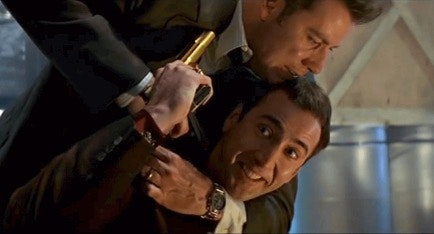
First, we have the next entry in our ever-popular Third Eye series, a series of staff-curated cult-classics (“cult” being a term staff can define for themselves!), and this month’s pick is from former projectionist Mari Wells. We sadly had to say goodbye to Mari recently, as she accepted a new job, but happily, we still get to enjoy Mari’s fabulous selection: John Woo’s Face/Off, starring a match made in cult-classic heaven, John Travolta and Nicholas Cage. Face/Off is Woo’s third American-made film, coming off a wildly successful career in Hong Kong, with brilliant films like A Better Tomorrow, The Killer, and Hard Boiled, and where he was one of the pioneers of the “heroic bloodshed” subgenre and became known for his dynamic and invigorating “bullet ballet” action sequences. Woo, who loved the American and European films and filmmakers that came before him (Sam Peckinpah, Francis Ford Coppola, the French New Wave directors), in turn influenced the American action genre, and those familiar with both Woo and the John Wick series, for example, will see the influence immediately. Woo remained and remains a distinct voice, however, and his gorgeously choreographed and wonderfully excessive action sequences are often paired with an equally excessive and wonderfully sincere, emotional melodrama, and Face/Off is a beautiful marriage of both action and melodrama. Woo is as interested in male-oriented violence as he is in deconstructing the often stoic masculinity of American films and in exploring the close-knit, emotional bonds between men, whether friends or enemies. Watch for the doves in Face/Off, a signature icon in Woo’s films, and a fantastically expressive testament to Woo’s simultaneous commitment to sincere emotion and vigorous action.
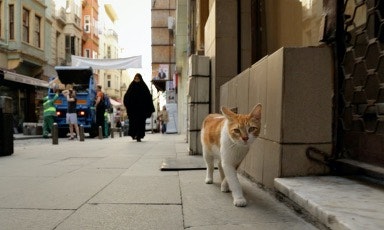
And for our second standalone event this week, we have a very special film, beloved by Pickford audiences in 2017, the joyous Turkish documentary, Kedi, a film for every animal lover, but especially for cat lovers. In support of the earthquake victims in Turkey and Northern Syria, this will be a benefit screening: 100% of ticket sales will be donated to UNICEF, towards relief of those affected by the tragedy. We hope to see you there!
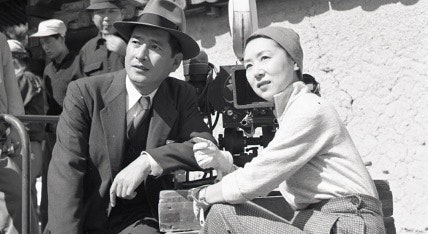
And finally, I could not be more thrilled that on March 1, the first day of Women’s History Month, we are screening Love Letter, a film that kicks off an incredibly special series of films with speakers: The Films of Tanaka Kinuyo. The series, co-presented by CASCADIA International Women’s Film Festival, will run on every Wednesday of the month, as well as on the first two Saturdays, and it’s a series you won’t want to miss. Series curator Jeff Purdue, who also curates the Pickford’s longest running series, Cinema East, writes this in his newsletter this week, introducing audiences to the new series:
“Cinema East is delighted to present a special series for Women’s History Month in March: The Films of Tanaka Kinuyo. Over the next few weeks, we will be screening seven films: six that were directed by pioneering director Tanaka as well as one film that she acted in during the time that she was making these films.
“First of all, it’s hard to overstate what a major retrospective this is. Tanaka’s films as a director have been completely unavailable for decades. Some years ago, I was able to find bootlegs of three of her films, one in a pretty good copy and the other two in pretty bad copies. To this day, none of her films are available on DVD or BluRay, nor are they available in any streaming format. Viewing them in a theatre is the only way to currently see these films. Even theatrical screenings haven’t been available in the past; and in fact, Tanaka’s films had never been screened in the US until last year when Janus Films made them available in restored prints. When I saw that Janus had restored these last year, my surprise was immense. I can easily say that I’ve never been more excited to bring a series of films before a local audience.
“There will be many opportunities to say more about these films and Tanaka as a director in the coming weeks, but I’ll simply note here briefly that Tanaka is one of the greatest actresses in Japanese, or any, cinema. Her career stretched from the late 1920s to the mid 1970s, and the number of extraordinary performances that she gave is very large indeed (and we have featured many of these in Cinema East). In 1953, she overcame tremendous odds to become only the second woman to direct feature films in Japan. Since the sole feature film of the first woman director, Sakane Tazuko, does not survive, Tanaka’s films are the earliest Japanese films we have to be directed by a woman. More than just her status as a pioneer, Tanaka’s work as a director is breathtaking, both in terms of her command of film form (including striking visuals) and in the stories she tells, and how she tells them. In short, this is the work of a major director, and as a film lover, it’s very gratifying to see this work be made available to a larger audience.
My favorite experiences in watching films have come from seeing the work of a great director in a theatre over a period of weeks – that sense of immersion in a world and an aesthetic. To see Tanaka Kinuyo’s work at the Pickford is really a dream come true. I hope you all will join me in watching these films.”
It’s a fabulous week for cinema. See you at the movies, friends!
Melissa
back to blog page button
Marketing Signup
Marketing Signup
site note
watch_later
We open 30 minutes before the first showtime of the day.
We open 30 minutes before the first showtime of the day.
accessible
All theaters are ADA accessible with wheelchair seating.
All theaters are ADA accessible with wheelchair seating.
hearing
Closed captioning and assistive listening devices are available at the box office.
Closed captioning and assistive listening devices are available at the box office.
custom footer

Pickford Film Center
1318 Bay St
Bellingham, WA 98225
Office | 360.647.1300
Movie line | 360.738.0735
Mailing Address
PO Box 2521
Bellingham, WA 98227
Footer

Loading...